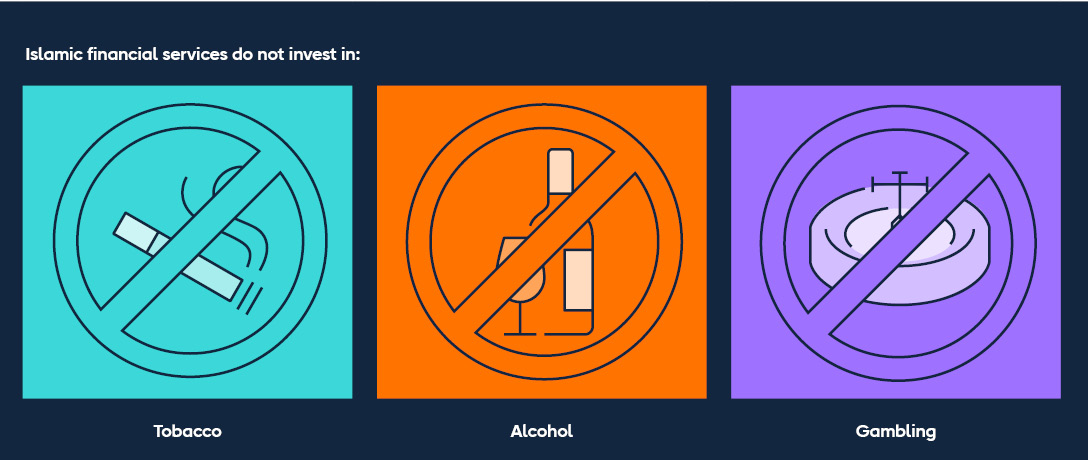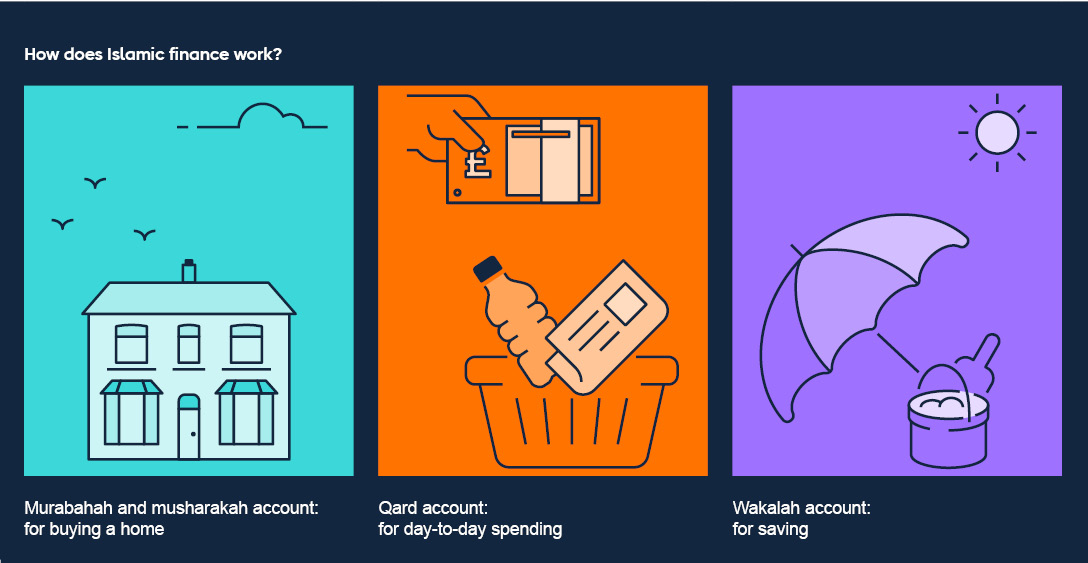Islamic finance is a way of managing money and doing business while adhering to the moral principles of . It covers matters such as saving, investing and borrowing to buy a home.
The laws that many Muslims live by are sometimes known as ‘shariah’. So, you may hear Islamic financial services described as ‘shariah-compliant’.
How is it different to other types of finance?
Islamic finance is based on the belief that money should not have any value in and of itself. It is just a way to exchange products and services that do have a value.
In other words, you should not be able to simply make money from money. This means that, wherever possible, paying or receiving interest should be avoided.
Another central principle is that money should not cause harm. Therefore, Islamic financial services do not invest in things such as alcohol, tobacco and gambling.
Islamic finance also encourages partnership and so, wherever possible, profit and risks should be shared. This can be between two individuals, an individual and a business, or a business and a business.
Anyone can use Islamic finance products and services – you do not have to be a Muslim.

How does it work?
There are several Islamic finance products and services available in the UK.
A shariah-compliant current account does not pay interest. The bank gives you access to your money and uses your deposit as an interest-free loan, known as a ‘qard’, to help finance its operations.
If you open a savings account, your bank will invest the money you deposit – but not in anything shariah says is harmful. It will then pay you part of any profit. Depending on what is invested and how the profit is worked out, this could be called a ‘wakalah’ (where the bank acts on your behalf, following your instructions) or a ‘murabahah’ (where the bank buys and sells commodities for profit).
When it comes to buying a home, there are a couple of alternatives to a traditional mortgage.
In one type of agreement, a bank can directly buy the property you want, then sell it to you at a profit and let you pay it back in instalments. This is also called a murabahah contract (because they are buying and selling it to you for profit).
Or you can buy the property jointly with a bank in what is called a ‘musharakah’ (partnership) contract. Then, over time, you pay the bank for its share.
In both cases, the bank charges you extra to cover its costs and to reflect the fact you are living in a property it partly owns.

What is the Bank of England's approach?
Our job is to keep the UK’s financial system stable. One way we do this is by allowing banks to hold accounts with us. This gives them a safe place to store funds, so they can continue to provide services to their customers.
We noticed that Islamic banks were unable to use these accounts because we paid interest on them. So, we created a type of account for them that does not pay interest. This means Islamic banks in the UK can receive some of the same support we give to others.
